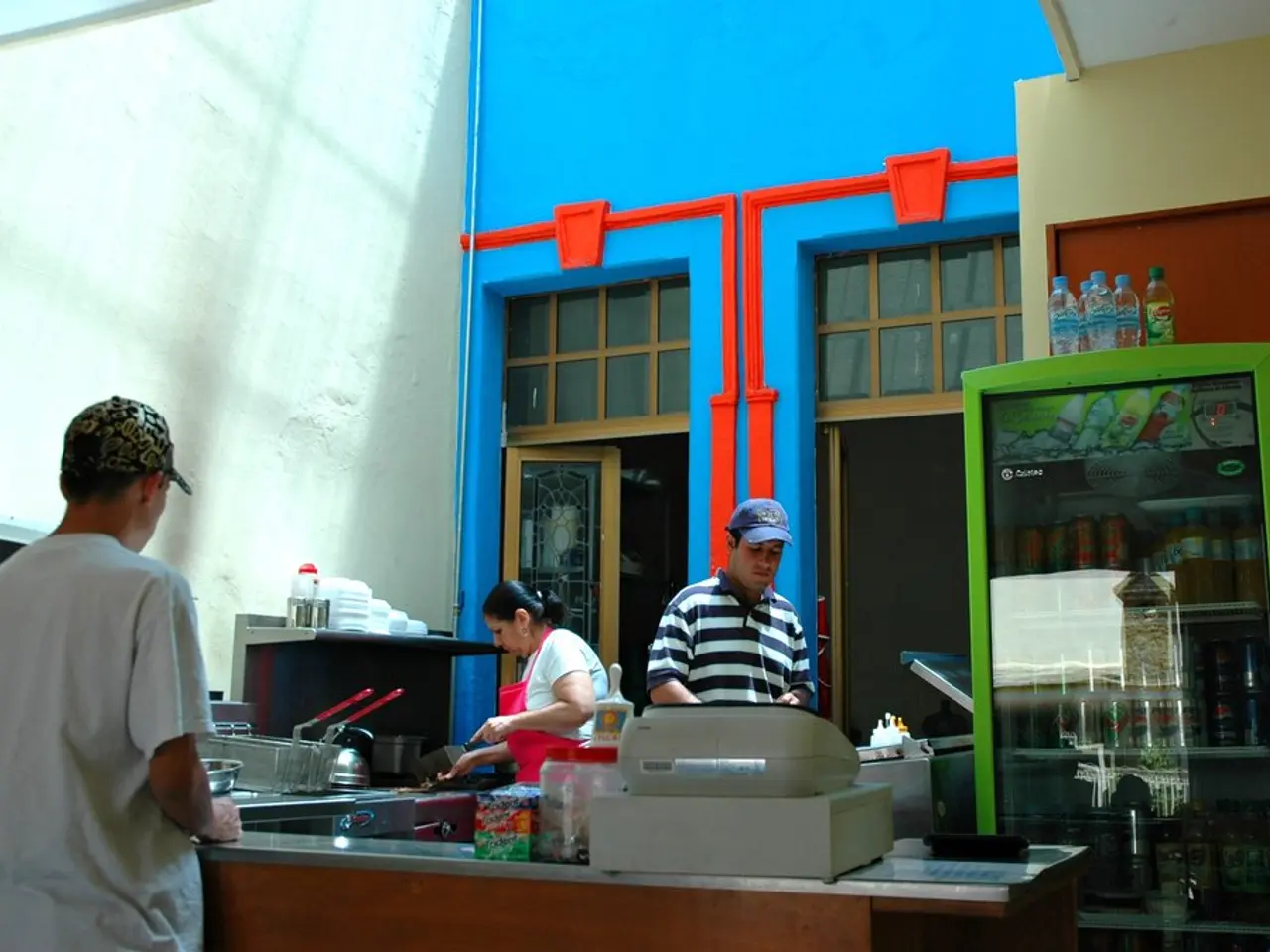Food alert service "Küchen-Alarm" seeks employment opportunities in the food industry, with a total of 61 job openings.
The hospitality and catering industry in Rhein-Kreis Neuss is grappling with a severe staff shortage, as numerous factors converge to create a challenging employment landscape.
Causes of the Staff Shortage
One of the primary reasons for the staff shortage is the low wages many workers in the sector receive. Despite the demands of the job, wages are often perceived as insufficient, deterring both new entrants and current employees from staying in or joining the industry.
The job itself presents challenging work conditions, with long, irregular hours, physical labor, and high stress levels. This, combined with an aging workforce and fewer young people choosing careers in hospitality, reduces the available labor pool.
The COVID-19 pandemic has further exacerbated the issue. Layoffs and furloughs have caused many workers to seek employment in other industries, creating uncertainty about job stability in the hospitality sector.
Proposed Solutions
To address the staff shortage, several strategies are being proposed. Regarding wages, employers and industry representatives advocate for higher wages to make hospitality jobs more financially attractive. Better remuneration is seen as key to retaining current staff and attracting new workers.
In terms of apprenticeship recruitment, efforts are underway to make apprenticeship training more appealing and better structured. Campaigns targeting schools and young people aim to improve the image of hospitality careers and highlight benefits such as career growth opportunities. Improving work environments to reduce physical and mental strain may also help retain apprentices and trainees.
Current Situation
Despite these efforts, a significant number of catering businesses in Rhein-Kreis Neuss are still not paying the collective wage, as stated by Claudia Hempel, the business manager of NGG Krefeld-Neuss. Hempel has sounded the "kitchen alarm" for the catering scene, advocating for a "catering starting wage" of 3,000 euros gross per month for full-time workers in the hospitality industry, not just after their training.
The current situation is such that many employees in the hospitality industry in Rhein-Kreis Neuss are still not receiving fair wages, with some earning less than 12 euros per hour. This is contrary to previous information.
The Federal Employment Agency has registered a total of 237 open positions in the hotel and catering industry alone for the Rhein-Kreis Neuss region. This includes 38 open positions in the hospitality industry not accounted for in previous bullet points and 92 vacant training places, which was not previously mentioned.
The staff shortage has led to some restaurants eliminating dinner service, lunch service, or both, and kitchens closing as early as 7 PM. These closures are unacceptable according to Hempel.
In conclusion, the staff shortage in Rhein-Kreis Neuss's hospitality sector is a complex issue, but addressing it through wage increases and more attractive, well-promoted apprenticeship programs are key strategies being proposed to resolve the issue.
- To counter the staff shortage, improvements in financial compensation, such as higher wages and a proposed "catering starting wage," are crucial to make hospitality jobs more financially viable and attractive to potential employees.
- The food-and-drink industry in Rhein-Kreis Neuss is facing challenges due to a lack of appropriate remuneration, with many employees earning less than 12 euros per hour, and the Federal Employment Agency reporting 92 vacant training places in the hospitality sector that were not previously mentioned.




